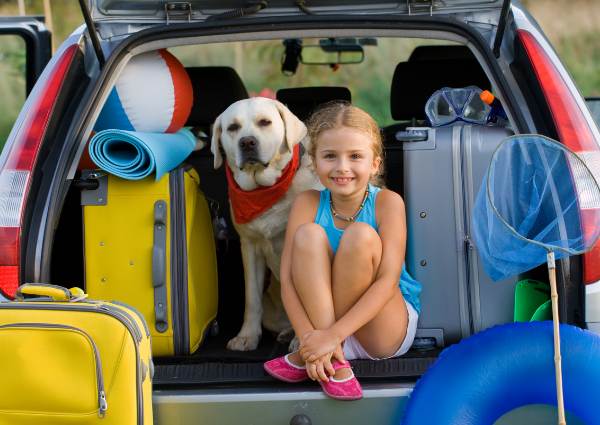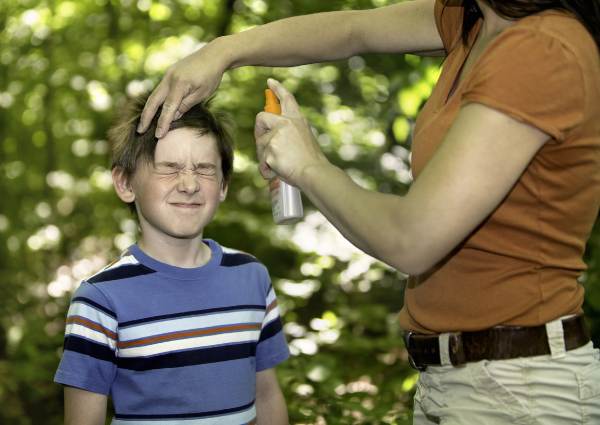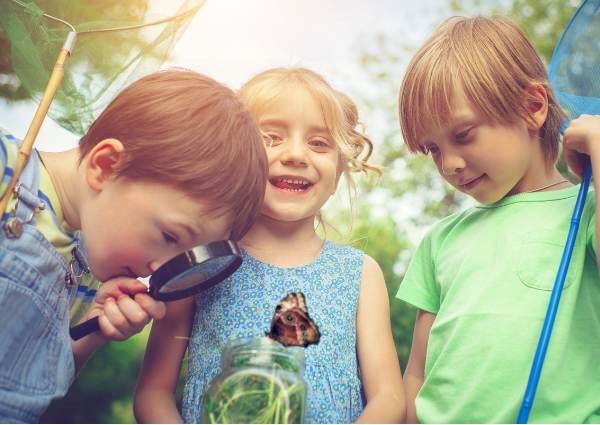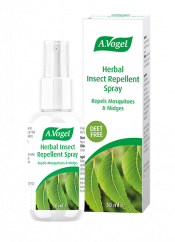Camping with children
Camping is an economic and popular child-friendly alternative to caravanning and hotels. You can introduce your child to the wonders of the great outdoors and take some much needed time away from technology, enjoying the natural scenery and wildlife of your surroundings.
However, it can also be very difficult to know exactly what to take with you, especially if space is a finite resource. What you should bring can rely on a lot of different variables – the weather, the campsite and the location. Children, by nature are also unpredictable, so you might find yourself planning for quite a few different scenarios, often including items that have no value and are just taking up much needed room in the car.
Below, we have constructed a list of basic essentials that you will most likely need on your camping trip, particularly if you plan on taking the children.
The essentials

First aid kit: The great outdoors can be a magical place for your children but it is also full of unexpected dangers and you never know what could happen. At the best of times, children are prone to getting all sorts of cuts, scrapes and bruises so it can never hurt to have a first aid kit on standby. Your kit doesn’t have to be anything fancy – a box filled with plasters, gauze, bandages and some TCP will usually do the job for most minor casualties. A packet of painkillers might be a welcome addition – it’s bad enough for a novice to try a pitch a tent, let alone with a gaggle of hyperactive children squealing around their feet.
Sensible clothing: Whether you’re camping in Britain or exploring foreign terrain, the weather can be unpredictable wherever you go. Try to make sure your children are dressed appropriately for their surroundings – wellie boots are a must-have for most outdoor UK experiences. If you’re somewhere slightly warmer, opt for looser clothing that can keep your child’s delicate skin protected but won’t compromise on their ability to breathe or keep cool out in the sun. Lighter colours might also be advisable as darker colours tend to absorb more sunlight, putting your child at risk of developing heatstroke or sunburn.
Plenty of water: Dehydration is a serious concern, especially in children. Not only is it terrible for the immune and digestive systems, it can also leave your child more vulnerable to kidney infections and sunstroke. When you go camping, make sure you have access to fresh, clean water and that your child is drinking regularly. If you plan on going on a hike or taking them for a trek through the forest, pack plenty of bottles of juice to keep them hydrated while they walk. Remember, fizzy drinks might seem like a nice treat during a summer barbeque, but they won’t quench your child’s first and can even act as a diuretic, exaggerating the problem.
Sunscreen: If you’re planning on soaking up a rare glimpse of British sunshine, then using a proper sunscreen is very important. Your children might not thank you for covering their arms and face in pale gunk, but their skin certainly will. What sunscreen you choose to use might depend on a number of variables but you should reapply it regularly and make sure that is does not induce an allergic reaction from their skin. Most conventional sunscreens do contain toxins that can be quite abrasive for delicate skin so switching to a natural alternative might be an ideal solution. Natural sunscreens are gentler on dry, sensitive skin and can work just as well as their supermarket counterparts. Your Health Food Store stocks a range of organic and natural sunscreens so it might be worth your time perusing their collection and considering your options
Anti-bacterial hand wipes: The great outdoors is full of muck, bugs and dirt, all of which will surely gravitate towards your little darling. If you want to try and keep your child from getting too sticky, then anti-bacterial hand wipes might be a useful addition to your itinerary. They can be used in a pinch, before meals and bedtime, to kill germs and prevent your child from possible contracting a nasty bug that might ruin their camping experience. You get anti-bacterial hand wipes at most retail stores for reasonable prices, although you might want to look into different alternatives if your child suffers from damaged or sensitive skin
Survival kit: We’re not trying to imply that you might end up in a Bear Grylls inspired survival situation, but camping outside can come with a lot of unexpected variables. It can’t hurt to have a torch packed away with a spare set of batteries just in case. A water filter might also be useful when it comes to purifying your drinking water, particularly if it’s been sitting stagnant for a couple of hours. A knife (not a sharp kitchen knife but an actual camping knife) can be helpful if you need to cut away foliage or start a fire but it goes without saying that they should be kept well out of reach of your children!
Repelling pests

Use neem insect repellent: It doesn’t matter whether you’re camping in Norfolk or glamping in the USA, bugs and beasties are likely to be a common problem wherever you choose to pitch your tent. In the UK, the usual offenders tend to be midges, houseflies and wasps – irritating but not exactly deadly unless you suffer from allergies. If you’re venturing abroad though, the spectrum is considerably widened and not for the better. A reliable insect repellent is essential, no matter where you plan on exploring. However, most conventional repellents contain abrasive toxins and chemicals that can aggravate sensitive skin. A.Vogel's Neem Insect Repellent is a natural product that will not irritate your child’s skin and is just as effective against pests as conventional sprays. Made using extracts of neem oil and eucalyptus, it should soothe sensitive or delicate skin and provide imminent relief from bugs of all shapes and sizes. Nevertheless, it is not suitable for pregnant women or breastfeeding mothers due to its content of essential oils.
Use mosquito nets: Mosquitoes are horrible, bloodsucking insects that inhabit warm, tropical countries. If you’re camping abroad, it might be worthwhile keeping these bugs at front of mind as they can carry potentially deadly diseases, such as malaria, zika and yellow fever. Most species tend to be very active during the night and they only require six seconds to transfer their saliva into your child’s bloodstream. Protecting them while they sleep is crucial, so you should consider using a mosquito net at night to keep the dastardly little creepers well away from your child’s vulnerable skin. If you want to read more about mosquitoes, check out my ‘Top 10 tips to prevent mosquito bites.’
Treat clothes: Ideally, your child should be wearing loose, lightly coloured clothing - if you’re in the UK, the more waterproof, the better! However, it might be an idea to treat your child’s clothes before they head outside, for the sake of extra coverage. ‘Treating’ clothes can involve leaving them to soak overnight in a solution formed by insect repellent and water, or spraying them with the insect repellent while they are drying. This should deter bugs and pests from choosing your child as their next meal and reduce the amount of repellent needed to spray on your child’s skin.
Avoid standing water: Mosquitoes and other bugs love standing water, like basins, bird pools or puddles so you should consider how you arrange your campsite. Don’t leave any containers of water standing overnight and avoid campsites that are situated close to a large body of water, like a lake or a pond. This should reduce your chances of encountering the pests and keep your children from making any unwanted friends while they play.
Clean up properly: This shouldn’t just be a measure against attracting insects – it should go without saying. Keeping your campsite clean can prevent any accidents from occurring and keep wild animals and insects from invading your pitch. It is also essential for the environment, as leftover plastic cups and aluminium cans are very bad for nature, killing local wildlife and reducing the overall appeal of the countryside.
No strong fragrances: Scented soaps and fragranced deodorants can attract pests like wasps and midges, drawing them towards your tents and your children. While it’s true that some scented oils can repel insects, your conventional beauty products are only likely to invite them in. Instead try opting for natural, unscented alternatives – not only will this help your insect problem, they can also be kinder on your skin and decrease the possibility of an unpleasant flare-up.
Keeping your children amused

Outdoor crafts: Outdoor crafts can be a great way of keep your kids amused during a camping trip. Children generally love being creative and this activity should afford them plenty of opportunities to show their artistic side. You can ask your child to collect leaves and then make a collage with them out of their findings, even shaping the leaves into animals or birds. You could also try transforming ordinary rocks into hedgehogs or rabbits, by gluing pine needles and decorating with acrylic paint
Scavenger hunt: An old one but a good one, a scavenger hunt is an excellent way of exploring the outdoors with your child. Simply organise a list of items for your child to find (try not to include anything that might upset an animal’s natural habitat, like a birds nest) and then take them off on a trail into the woods to find them. Not only with this keep them active, but it’s also a great way to teach them more about the environment and nature
Ball games: Ball games such as tennis, badminton or football are a natural way of keeping your child active outdoors. Just choose a large area of grass, preferably away from other tents, and pick a sport. This should keep your child entertained for a few hours and allow you to bond as a family, instilling important lessons about teamwork and sportsmanship
Camping Olympics: Camping Olympics is a good bit of fun that the entire family can enjoy. Depending on your resources, and the materials that you have to hand, you can create a mock Olympic Games, involving alternate versions of popular sports such as, gymnastics, biathlon and even the Olympic Torch lighting ceremony. The limit with this one is definitely your imagination!
Group storytelling: Paying homage to the classic ideal of campfires and ghost stories, you can try to get your children in on the fun by asking them to make up their own tall tales. This should give them a chance to demonstrate their creativity, and even improve their vocabulary and language skills. Storytelling is also a natural way of preparing them for sleep, giving them a chance to drift off without being attached to the screens of their mobile phones
Star gazing: Depending on the location of your campsite, you are likely to have a brilliant view of the night sky, free from light pollution and smog. Why not take this opportunity to try and teach your children more about the solar system? You could even invest in a small telescope and show them the different planets and constellations, giving them an insight into space and a better understanding of the world that they inhabit.





 Looking for our products in a store near you?
Looking for our products in a store near you?

